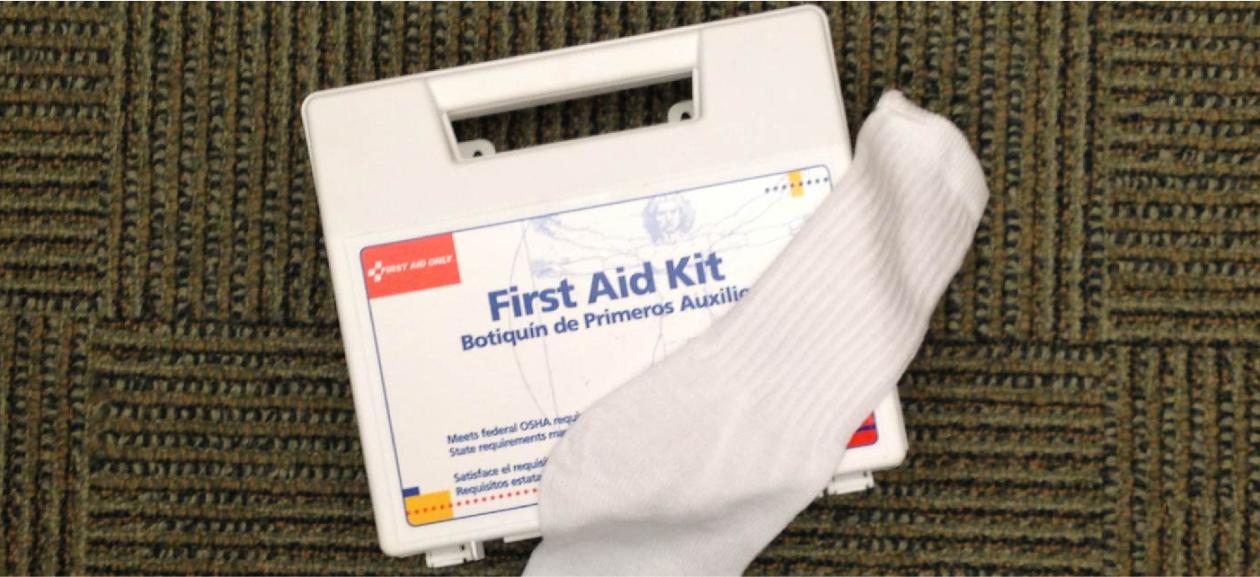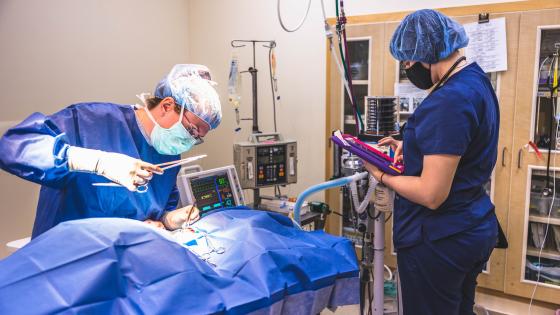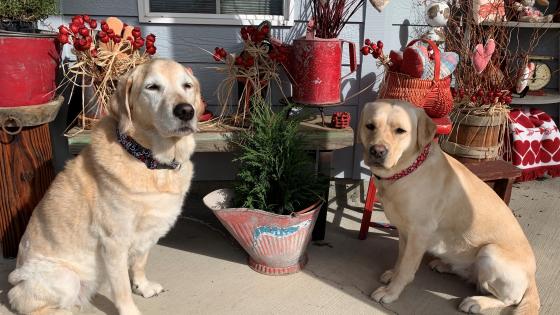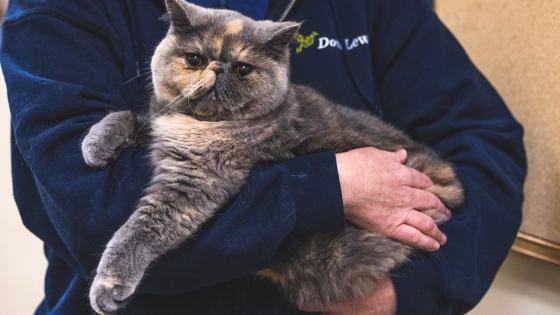
Knowing Pet First Aid Can Save Your Pet’s Life in an Emergency
DoveLewis medical professionals share first aid care tips for a variety of situations
PORTLAND, Ore. – Doctors at DoveLewis Veterinary Emergency & Specialty Hospital encourage pet owners to be prepared in an emergency by learning basic pet first aid. Administering first aid in a critical situation may save a pet’s life.
“Every year, DoveLewis provides emergency veterinary care to more than 15,000 patients,” said Dr. Christy Michael. “No one expects or hopes to deal with a pet emergency, but it’s important to be prepared so you can remain calm and focused in any type of situation.”
DoveLewis offers free pet first aid workshops <https://www.dovelewis.org/news-events/pet-first-aid/> for the community several times a year taught by leading veterinary professionals. In the meantime, learning the basic tips below can prepare any pet owner in a crisis situation.
Always remember that any first aid administered to your pet should be followed by immediate veterinary care. First aid care is not a substitute for veterinary care, but it may keep your pet stable and prevent further injury until he or she receives treatment.
GENERAL FIRST AID TIPS
Any injured and scared pet – even the gentlest animal – may bite or scratch in stressful emergency situations. Pain and fear can make animals unpredictable or even dangerous. Don’t attempt to hug an injured pet, and keep your face and hands away from their mouth.
Go slowly and be gentle when examining your pet’s injuries, and stop if your pet becomes agitated.
Keep a pet first aid kit at home and in your car, if you travel often with your pet. You can build your own pet first aid kit by gathering some basic, useful items.
POISONING AND EXPOSURE TO TOXINS
In general, any products that are harmful to people are also harmful to pets, such as cleaning products, rodenticide and antifreeze. But there are also several additional common food and household items that may be harmful to your pets. Be aware of these items and keep them away from pets.
If you know or suspect that your pet has ingested something poisonous, seek veterinary treatment immediately. Collect any material your pet may have vomited and bring it to your vet in a plastic sealable bag. Do not try to induce vomiting or give any medications to your pet unless directed to do so by your veterinarian.
If your pet’s skin or eyes are exposed to a toxic product, such as a cleaning product, follow the instructions on the product label for exposure. If the product instructs humans to wash skin with soap and water or flush eyes with water, do this for your pet as soon as possible (if you can do it safely). Then call your veterinarian or DoveLewis immediately.
SEIZURE
If your pet is having a seizure, clear the area of other pets, furniture and any other objects that may cause injury. Do not try to restrain your pet or startle him or her out of the seizure. Time the seizure – they usually last two to three minutes. After the seizure has stopped, keep your pet warm and quiet, and call your veterinarian or DoveLewis immediately.
INJURY
If possible and safe, try to stabilize injuries before moving an injured animal by splinting or bandaging them. Keep in mind, however, that a poorly applied bandage or splint can do more harm than good. If in doubt, leave the bandaging or splinting to professionals.
If there is a foreign body in the wound, do not remove it. If necessary, carefully cut it short without moving it to leave three to six inches sticking out before transporting your pet.
While transporting your injured pet, keep him or her confined in a small area to reduce the risk of additional injury. Use a pet carrier, box or other safe container with plenty of airflow. Larger dogs can be transported on a board, sled, blanket, rug or something similar that can act as a stretcher.
Call your veterinarian or DoveLewis on your way, so medical professionals can be ready for your when you arrive.
CHOKING
Choking pets have difficulty breathing, paw excessively at their mouths, make choking sounds when breathing or coughing, and may have blue-tinged lips or tongue. If your pet can still breathe, keep him or her calm and seek immediate veterinary care.
Look into your pet’s mouth to see if a foreign object is visible. If you see an object, gently try to remove it with pliers or tweezers, but be careful not to push the object further down the throat. If it’s not easy to reach, get your pet to a veterinarian immediately.
Often times, emergencies happen after regular business hours. DoveLewis is open 24/7 to help pets in critical condition and their owners every day of the year.
###



